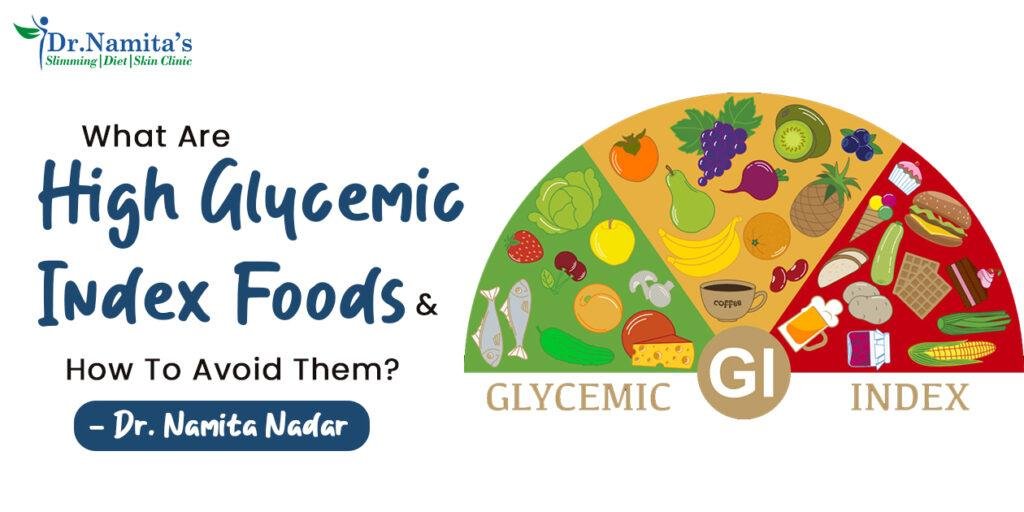In nutrition, the glycemic index (GI) is a crucial concept often discussed by experts like Dr. Namita Nadar, renowned as the Best Dietitian in Noida. Understanding the glycemic index of foods is fundamental for managing blood sugar levels and promoting overall health. High glycemic index foods can cause rapid spikes in blood sugar, leading to various health issues including diabetes, weight gain, and heart disease. In this blog, we delve into what high glycemic index foods are and provide strategies recommended by Dr. Namita Nadar to avoid them.
High glycemic index foods are those that are rapidly digested and absorbed, causing a quick and significant increase in blood sugar levels. These foods typically include refined carbohydrates such as white bread, white rice, sugary cereals, and sweets. When consumed, they prompt a rapid release of glucose into the bloodstream, leading to a spike in blood sugar levels. This spike is followed by a subsequent crash, leaving you feeling tired, hungry, and craving more sugary foods, thus creating a vicious cycle.
As the Best Nutritionist in Noida, Dr Namita Nadar emphasizes the importance of avoiding high glycemic index foods and instead opting for low GI alternatives. Low glycemic index foods are digested and absorbed more slowly, leading to a gradual and steady rise in blood sugar levels. These include whole grains, legumes, fruits, vegetables, and lean proteins.
To help you steer clear of high-GI foods, Dr Namita Nadar suggests the following strategies:
- Read Food Labels: Pay attention to food labels and choose products with low glycemic index values. Look for whole grain options, foods high in fibre, and those with minimal added sugars.
- Opt for Whole Grains: Replace refined grains with whole grains such as brown rice, quinoa, barley, and whole wheat bread. Whole grains are rich in fibre, vitamins, and minerals, and they digest more slowly, keeping you feeling full and satisfied for longer.
- Incorporate Protein and Healthy Fats: Including protein and healthy fats in your meals can help slow down the absorption of carbohydrates, thus reducing the overall glycemic index of the meal. Add sources of protein such as lean meat, poultry, fish, tofu, beans, and nuts to your meals.
- Choose Fruits Wisely: While fruits are generally healthy, some have a higher glycemic index than others. Opt for fruits such as berries, apples, oranges, and pears, which have lower glycemic index values compared to tropical fruits like watermelon and pineapple.
- Limit Sugary Snacks and Beverages: Avoid sugary snacks, desserts, and beverages such as soda, candy, pastries, and sweetened yoghurt. These items can cause rapid spikes in blood sugar levels and provide little nutritional value.
By following these strategies recommended by Dr. Namita Nadar, the leading Dietitian and Nutritionist in Noida, you can effectively manage your blood sugar levels, promote weight loss, and improve overall health. Remember that making small but consistent changes to your diet can have a significant impact on your well-being in the long run.

